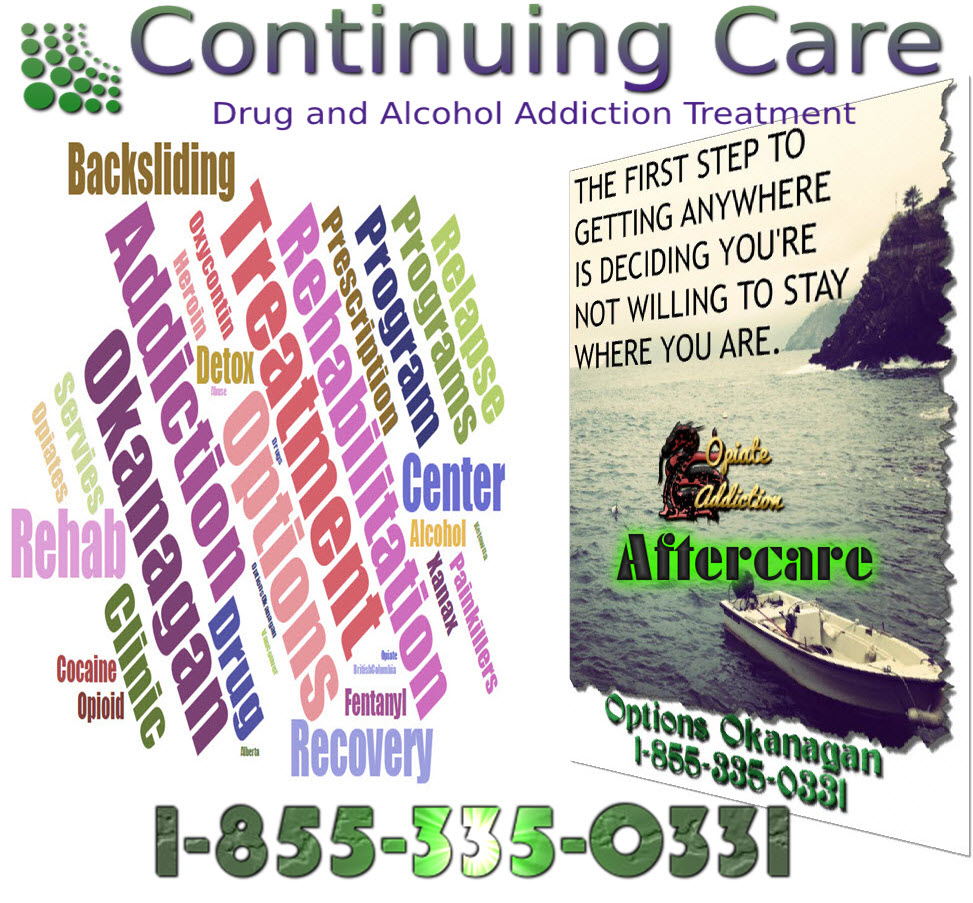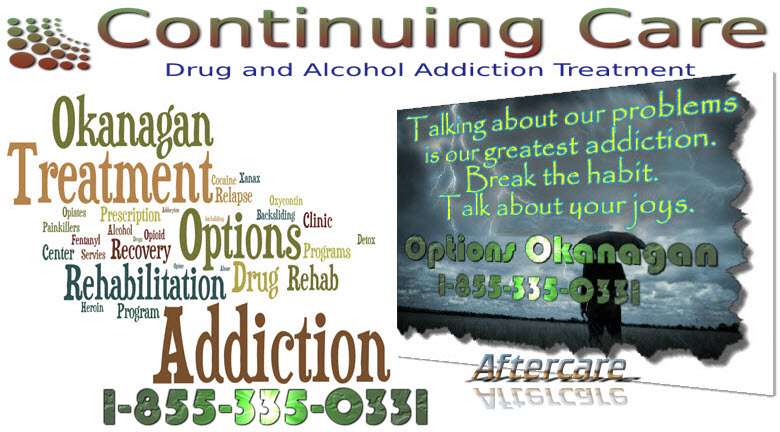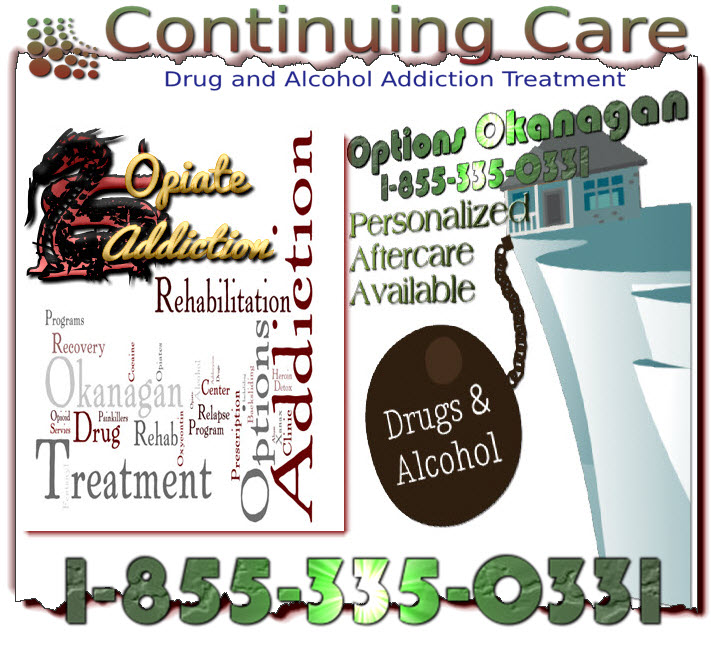Extended addiction aftercare and continuing care options and rehabilitation in Vancouver, Victoria and Kelowna, British Columbia. – Options Okanagan Treatment Centers in Kelowna, British Columbia treating opiate and alcohol addiction and recovery.
Extended drug rehabilitation programs exist for anyone with a serious substance abuse addiction to take charge of their lives again. Extended addiction treatment generally includes some form of rehabilitation for the drug in question, as well as aftercare and continuing care treatment that extend the overall duration of care for longer than the traditional 90 days.
8 – How Long Are Inpatient Rehab Tenures?
The standard inpatient and residential rehab tenures are around one to three months, but more time will be required in particularly severe cases. This could easily last up to a year if necessary. In the case of a serious addiction, longer care is needed in order to make sure there’s no relapse somewhere down the line. Long term stays are also of great use to patients that also have any physical or mental disorders on top of their existing addictions. The typical treatment program tenures are as follows:
* 28 to 30 day program
* 2 month program
* 3 month program
* Extended (over 3 months)
9 – Addiction Treatment Payment
Paying for treatment of this nature isn’t generally a cheap endeavor, but there are programs in place to help patients secure financing. The facilities also do their best to work with health insurance companies to work out something financially viable on both sides. The pricing will obviously play a part in how long a patient might stay, and in some cases the arrangement may only consist of a trial basis if there are any financial details left up in the air. A lot of facilities price their programs on a sliding scale however, and payment plans are almost always available.
The following factors must be considered when choosing the program you or your loved one may enroll in:
* The overall tenure
* The form of treatment
* The period of amenities
* Whether inpatient or outpatient treatment is the way to go
* How far from home the facility of choice is
* Where to go from there
10 – How Far Away From Home Should You Go?
In a lot of cases, the environment that a person needs to recover isn’t congruent with the one they’re currently in. Any day to day life that has a lot instability or stress can hinder the healing process, making it necessary for a longer stay away from home. Getting away from the stresses of daily life is often for the best when treating addiction.
Once the rehab program has ended, patients can go into an extended program if they aren’t ready to get back to their normal routine and interact with society just yet. Many people are still very vulnerable after their initial treatment. It’s best to consult with doctors and therapists on staff about what else a patient may need and how long it will take. They will be able to give a non biased assessment of the issues at hand, and whatever the best course of action may be in treating them.
11 – What You Should Expect Of The Treatment
Addiction rehab programs are all more or less the same in the overall layout. The basic steps they tend follow are:
* Initial assessment
Before any sort of substance abuse program is underway, a counselor must help assess where the patient is at with their addictions to get the ball rolling. They can suggest the best plan for treatment, and also figure out whether inpatient or outpatient care will be necessary. It’s usually here where a lot of questions about the home life of the potential patient are fielded.
Inpatient treatment is generally suggested if the individual is suffering from long standing issues, especially if they have other disorders plaguing them at the same time. Outpatient facilities can offer much of the same treatment, but it isn’t as rigorous. The initial assessment is crucial in figuring out which of the two are needed.
* Individual assessment
The assessments then turn a bit more personal as the addiction’s severity is accounted for. All medical details are worked out, as is the psychiatric state of the individual. The treatment process’ nature will largely be molded by whatever is found, so it’s incredibly important that everything is accounted for.
* Detoxification
The first step in the treatment is generally detox. The focus is to allow the patient to withdraw from their addictions in as safe a manner as possible. Facilities always supervise the detox process quite closely, with a medical staff on hand to aid in any way required of them.
Withdrawal symptoms are notoriously difficult to suffer through, but the rehab facility staff can make it as comfortable as possible with medication. A delicate balance must be struck since some withdrawal symptoms can be fatal if not handled properly.
Within the last two years, it’s been determined that at least 80 percent of rehab centers offered medication assisted detox. The detox itself is integral, but even further treatment is always necessary in order to make sure the patient has the tools needed to stay away from the substances and live a healthier lifestyle moving forward.
* Rehab
As such, the process of ongoing rehab then goes underway. It will take as long as the individual needs in order to build the foundation of their sobriety.
12 – Treatment Approaches
Long term treatments generally include a variety of methods. These include:
* Traditional therapy treatment
* Non-structured programs (as opposed to 12 step)
* Secular (non-religious) programs
* 12 step group programs
* Spiritual programs
* Holistic treatment
* Religious programs
* Faith centric programs
As you can see, as many different philosophies and ideals are catered to as possible. No patient will be forced into a methodology that they aren’t comfortable with. Even so, some research must be done a given facility to make sure their treatments are all ultimately medical and evidence based. But ultimately, whatever rehab center offers care most in line with that of the beliefs of the patient is always the best choice.
Options Okanagan Opiate and Alcohol Treatment Centers in Kelowna, Salmon Arm and Vancouver, British Columbia – Men and Women are recovering and healing from Alcohol and Drug Abuse at our treatment center here in the Okanagan right now.
Our unique and distinctive Opiate Drug and Alcohol treatment program allows men and women to come in from Calgary as well as Edmonton as we offer airport pickup.
Numerous clients come to us from Vancouver, Calgary and Edmonton and other locations in Alberta and even other provinces for Opiate addiction treatment, heroin drug treatment, many other drug and alcohol addictions for rehabilitation because of the uniqueness of our treatment center.
Our Treatment Location:
Options Okanagan Drug and Opiate Treatment Center
551 Sherrydale Crescent, Kelowna, British Columbia, V1V 2E6
Toll Free Phone Number : 1-855-335-0331





